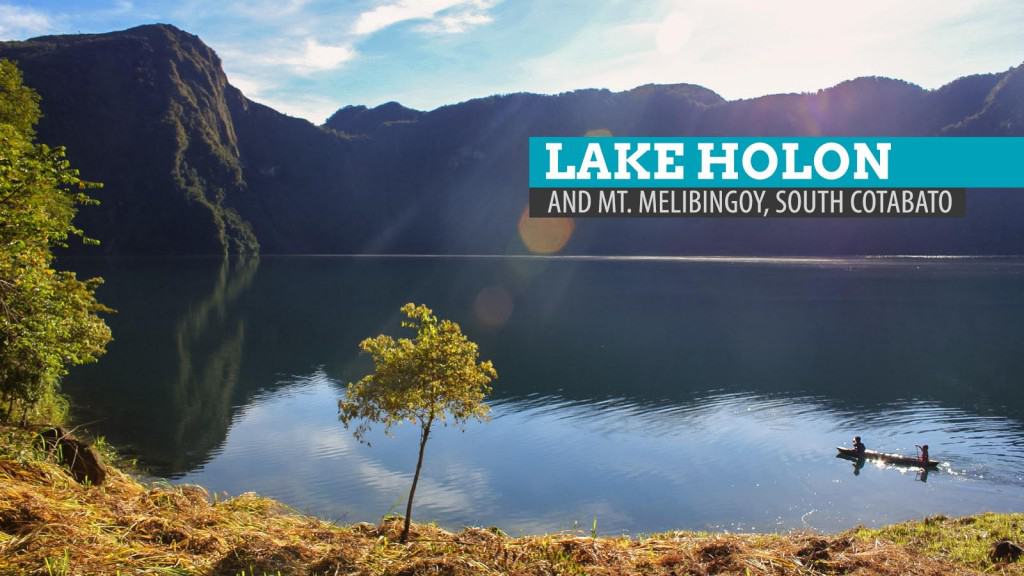“Remind me again why we’re doing this” were the only words that I managed to let out in between gasps as I turned around to face my fellow travel bloggers. They were battling their own breathlessness.
“We have no idea,” they answered with synchronized laughter while trying to scale another sharp slope.
With all that I had been through during the trek, a reminder would help me reclaim the focus that has slipped somewhere along the trail, perhaps during the moments I lost balance, slid down, and scratched all my limbs. There was a teensy part of me that wanted to back out. The part, however, was not only cowardly but also stupid for I had come a long way.
A long, long way.
We had spent almost four hours trekking under the fickle skies — sometimes threatening us with the looming rainclouds, other times frying us with the harshest sunlight. Not counting the full hour we were carried by a habal-habal on the bumpiest — no, bounciest — ride I had ever had a pleasure of surviving. The magnitude 8 trembling of my knees and the intensity 10 profanities I involuntarily cried would have been for nothing if I turned back. The only chicken this day was going to see was the one I had for breakfast that morning.
But I still needed a reminder. Even just a glimpse of our destination? Pretty please?
It wasn’t like we had not been pampered by the mountain the past hours. It had, actually. Along the way, we spotted some of the tallest trees, the smallest nepenthes (pitcher plants), and the sexiest clouds that I laid eyes on. After all, we were there for a reason.
Lake Holon and the Allah Valley
Located in T’boli, South Cotabato, Mt. Melibingoy towers over the town with its highest peak at 1,750 meters. A dormant stratovolcano, it harbors a crater named Lake Holon, which was formed after an eruption on January 4, 1641. The mountain and the lake are also known as Mt. Parker and Lake Maughan, in honor of American surveyors whose plane crashed at the site. It has also nurtured wild, endemic flora and fauna.
Lake Holon feeds Allah River that flows across South Cotabato all the way to Maguindanao. It is a main source of food and livelihood in the Allay Valley, an area shared by South Cotabato and Sultan Kudarat.
Allah Valley has been battling floods since the 1990s. To create a solution, a group called Allah Valley Landscape Development Alliance (AVLDA) was formed. They discovered that one of the problems was the environmental degradation in the highlands since many locals are forced to cut down and burn trees to earn a living. Funded by LGSP-LED, a collaborative program between the Philippines and Canada, they are formulating an eco-tourism program as a more sustainable alternative source of income for the people. AVLDA and LGSP-LED invited bloggers, myself included, to try their proposed tourism circuits to help them better the program with our feedback and spread the word about South Cotabato and Sultan Kudarat.
A Path Rarely Trodden
It wasn’t my first time to trek, but it was my first trek to a not-so-popular destination. It shows on the trail itself. Thick moss blanketed many parts of the trail, which was also fringed with overgrown grass and flowering shrubs.
It was both frightening and encouraging. Frightening, because we knew we were going the narrow, slippery way. (Later, I would find myself accidentally stepping on a moss-covered rock and sliding three meters down, injuring my arms.) Encouraging, because the tougher the trail got, the more we realized we were in for a treat — the pristine, almost untouched kind. And we were right.
The Reclusive Calm of Lake Holon
A wound and 34 scratches later (yes, I counted), I finally reached the edge of the lake. As if all the fatigue vanished magically and with renewed energy, I ran to the banks and danced with the wind. The music: that distinctly amplified songs of the cicadas. The audience: the ghostly clouds kissing the peaks of Melibingoy and the tall grass that swayed lightly, which were reflected perfectly on the mirror-like surface of the lake. It was so clear and peaceful that a fly dipping a toe would send ripples across it and I would see it from where I stood. No wonder, it has been awarded the Cleanest Inland Body of Water in the Philippines for two years.
Three traditional canoes were docked in one corner, as if waiting for us all this time. Climbing Mt. Melibingoy made breathing difficult, but Lake Holon completely took my breath away and ran with it.
Tired, who? None of us bothered to take a rest. We were but paper clips drawn mercilessly to the giant liquid magnet before us. We snapped away, pausing every now and then to admire silently, as if worshipping.
When the dark finally defeated the dwindling light, dinner was ready. The cold, cold wind fostered an atmosphere ideal for reflection. But with someone serving a glass of rum every two minutes, the only reflection that happened was the lights from my phone bouncing off of my oily face.
The next morning, I was one of the first to get up. Like reflex, marched to the edge of the lake and basked in the gentle sun. I sat on a boulder and thought about the arduous climb the day before and dreaded the hike back down. Why do we like trekking and climbing mountains for hours even in uncaring weather? Two locals — canoeing, catching fish — passed by, rippling the lake’s surface that shimmered gracefully with every wave. There is no better reminder than Lake Holon.
Posted: 2013 • 7 • 21
How to get to Lake Holon: From the town proper of T’boli, ride a habal-habal to Salacafe. Travel time is around 1 hour. From Salacafe, it’s a 3-4 hour trek over rugged terrain to Lake Holon.
